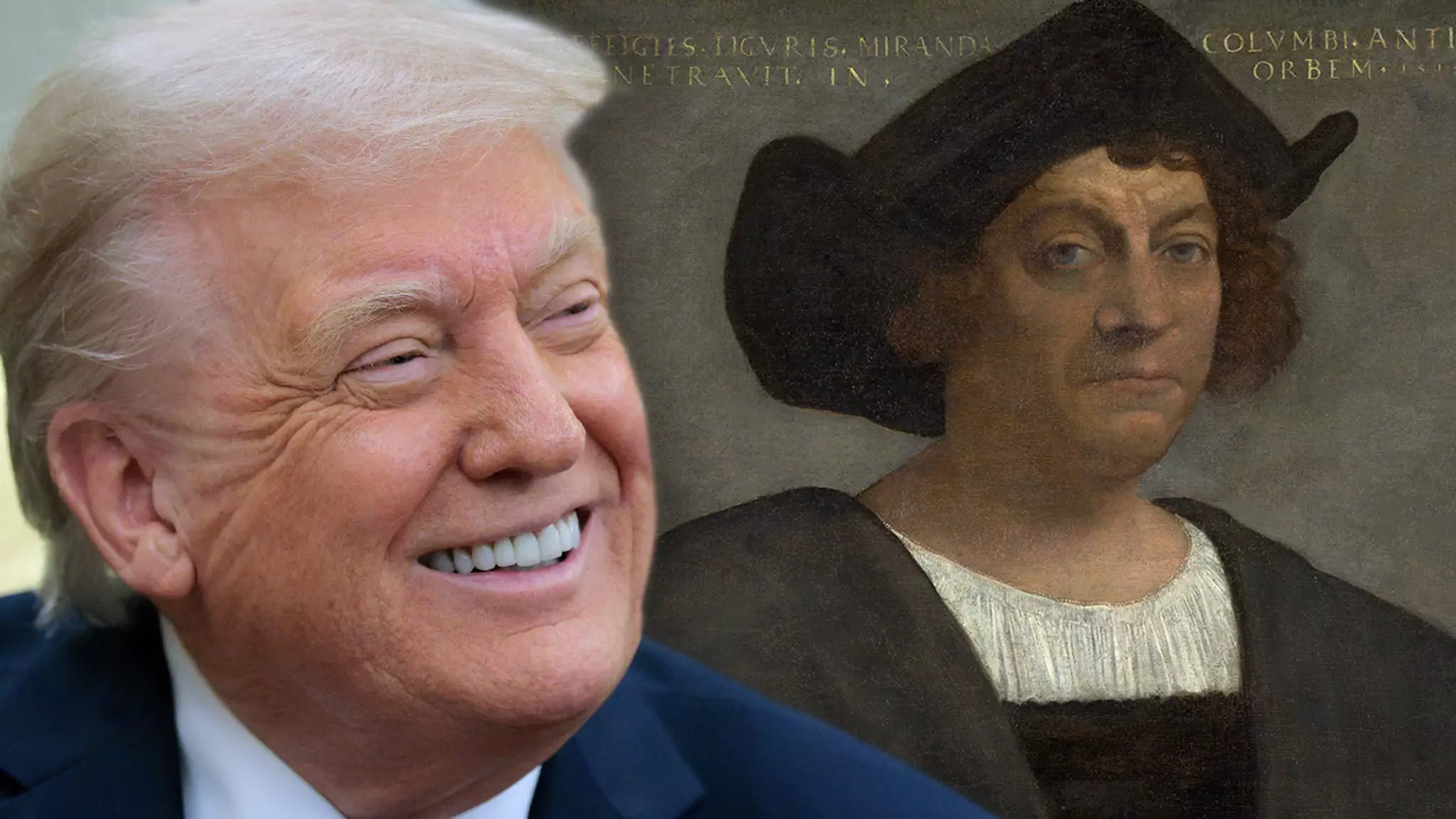Donald Trump has recently embarked on a campaign to resurrect the legacy of Christopher Columbus as he positions himself as a champion for Italian Americans. In a spirited diatribe on Truth Social, Trump criticized Democrats for allegedly tarnishing Columbus’s reputation, presenting the explorer not just as a historical figure, but as an icon belonging to the Italian community. This move raises important questions about historical interpretation and the responsibilities of public figures in shaping cultural narratives.
Columbus emerged from the annals of history as a complex figure—one who is celebrated for his explorative spirit while simultaneously criticized for his role in colonialism and its detrimental impact on Indigenous populations. By rallying for Columbus’s revitalization, Trump is not merely addressing Italian pride; he is attempting to navigate the stormy waters of contemporary discourse surrounding colonialism, cultural appropriation, and social justice.
The Politics of Remembrance
Trump’s announcement to “bring Columbus Day back from the ashes” speaks to his larger narrative of defiance against perceived “woke culture.” The episode exemplifies how historical commemorations evolve and become battlegrounds for cultural and political identities. The recent trend towards replacing Columbus Day with Indigenous Peoples’ Day serves as a symbolic acknowledgment of a darker chapter in American history—the marginalization and oppression faced by Native communities.
This ongoing debate touches on a fundamental issue: How do we reconcile the admiration for historical figures with the complex legacies they leave behind? Rather than merely advocating for the reinstatement of a holiday, Trump’s rhetoric might inadvertently simplify a historical narrative steeped in pain and conflict.
Strategy or Sentiment?
Scrutinizing Trump’s motives, one could argue that his defense of Columbus serves dual purposes. It appeals to a constituency that feels overlooked amid discussions of diversity and social justice while also providing a platform to lash out at political opponents who have championed the push for more inclusive representations of history. It’s a strategic maneuver that aims to resonate with a specific voter base, particularly those who feel their cultural identities are increasingly under siege.
The truth is that Columbus Day remains a federal holiday, yet the discussion around its observance offers a glimpse into the shifting cultural priorities of modern America. While Trump promises to hold on to tradition, many argue that a true path to honor and recognition involves a greater understanding of history from multiple perspectives, rather than a nostalgic return to a single narrative.
The Implications of Historical Reclamation
Trump’s desire to reinstate Columbus’s legacy must be viewed through the lens of broader social change. His rhetoric is not solely about honoring an Italian hero; it’s part of a larger discourse on cultural memory and identity politics. The challenge lies in balancing respect for historical narratives with an ethical duty to acknowledge the implications surrounding those figures.
Moreover, it raises the question of what it means to “honor” a legacy fraught with complexity. As communities grapple with their histories, the call for celebration should ideally pave the way for informed dialogue rather than blind nostalgia. The stakes are high, and the impacts of these narratives will be felt across generations—making it essential for our leaders to approach such issues with sensitivity and awareness.

